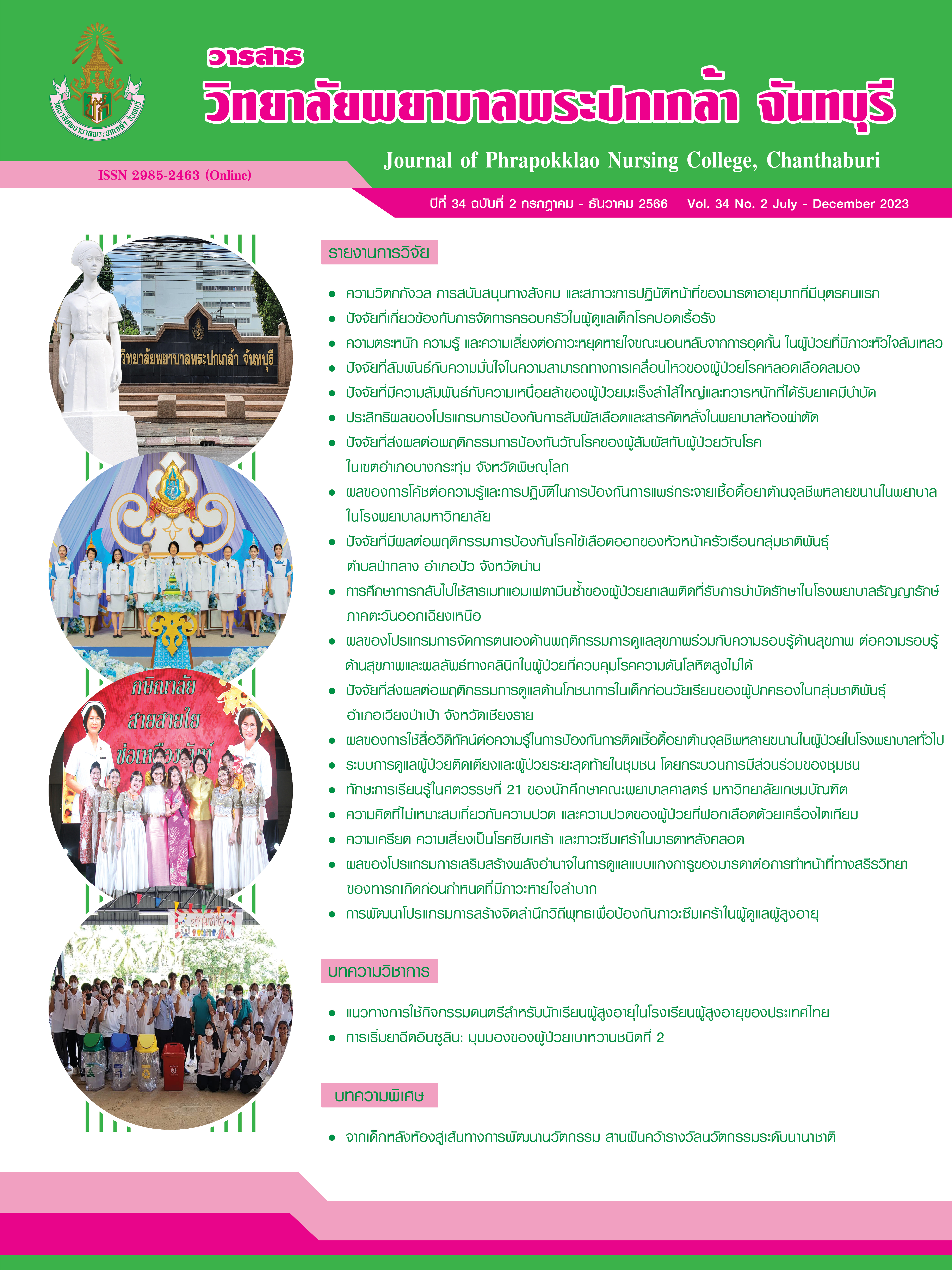Insulin Initiation: Type 2 Diabetes Patients’ Perspectives
Keywords:
Insulin initiation, Type 2 diabetes patients’ perspectives, Psychological insulin resistanceAbstract
Good glycemic control in people with type 2 diabetes often requires supplementing with insulin therapy. However, this is seldom initiated early or aggressively enough. This article explains how a psychological opposition towards insulin use in both people with diabetes and prescribers has led to widespread psychological insulin resistance (PIR). The obstacles from the patient’s perspective extend beyond a simple fear of needles, and when these personal barriers are recognized and addressed reluctance to start insulin therapy can be overcome. Furthermore, it seems likely that a high percentage of cases where PIR occurs could be prevented if clinicians introduce the possible need for insulin early in treatment. Intervention strategies that address factors linked with PIR may be used to facilitate the timely initiation of insulin therapy at an effective dose.
References
กีรตี ไตรคีรีสถิต. (2560). การยินยอมฉีดอินซูลินภายหลังการเข้าโปรแกรมอบรมแบบครอบคลุมเปรียบเทียบกับการให้คำปรึกษาตามปกติในผู้ป่วยเบาหวานชนิดที่ 2 ที่ปฏิเสธการฉีดอินซูลิน (วิทยานิพนธ์ปริญญามหาบัณฑิต). ปทุมธานี: มหาวิทยาลัยธรรมศาสตร์.
บุญจันทร์ วงศ์สุนพรัตน์. (2552). Practical issue of diabetes education: Convincing patients to start insulin therapy. ใน หน่วยต่อมไร้ท่อและเมตะบอลิสม ภาควิชาอายุรศาสตร์ คณะแพทยศาสตร์โรงพยาบาลรามาธิบดี มหาวิทยาลัยมหิดล, การประชุมวิชาการ Ramathibodi Diabetes Day Education 2009 ครั้งที่ 5 เรื่อง Diabetes update: Applying new evidence into clinical practice (น. 95–97). กรุงเทพฯ: หน่วยต่อมไร้ท่อและเมตะบอลิสม ภาควิชาอายุรศาสตร์ คณะแพทยศาสตร์โรงพยาบาลรามาธิบดี มหาวิทยาลัยมหิดล.
เพชร รอดอารีย์, สุภาวดี ลิขิตมาศกุล, สิริมนต์ ริ้วตระกูล ประเทืองธรรม, ระวีวรรณ เลิศวัฒนารักษ์, และสุชาดา ธนภัทร์กวิน. (บ.ก.). (2558). คำแนะนำการฉีดยาเบาหวาน สำหรับบุคลากรทางการแพทย์. กรุงเทพฯ: สมาคมโรคเบาหวานแห่งประเทศไทย ในพระราชูปถัมภ์สมเด็จพระเทพรัตนราชสุดาฯ สยามบรมราชกุมารี.
ยุพิน เบ็ญจสุรัตน์วงศ์. (2555). การรักษาเบาหวานด้วยอินซูลิน. วารสารเบาหวาน, 44(1), 34–47.
ราม รังสินธุ์, และปิยทัศน์ ทัศนาวิวัฒน์. (2558). รายงานวิจัยฉบับสมบูรณ์ การประเมินผลการดูแลผู้ป่วยโรคเบาหวานชนิดที่ 2 และโรคความดันโลหิตสูง ของโรงพยาบาลในสังกัดกระทรวงสาธารณสุขและโรงพยาบาลในพื้นที่กรุงเทพมหานคร ปี 2558. สืบค้นจาก http://www.nhso.go.th/downloadfile/fund/CRCN_58/3.pdf
วีระศักดิ์ ศรินนภากร. (2557ก). การเริ่มฉีดยาอินซูลินในผู้ป่วยโรคเบาหวานชนิดที่ 2 ที่ใช้ยาชนิดรับประทานไม่ได้ผล. ใน วีระศักดิ์ ศรินนภากร (บ.ก.), การดูแลผู้ป่วยโรคเบาหวานที่ยากต่อการรักษา (น. 121–131). กรุงเทพเวชสาร.
วีระศักดิ์ ศรินนภากร. (2557ข). อินซูลิน. ใน สมาคมผู้ให้ความรู้โรคเบาหวาน, โครงการอบรมผู้ให้ความรู้โรคเบาหวาน หลักสูตรพื้นฐาน: Communication & empowerment (น. 148–175). กรุงเทพฯ: สมาคมผู้ให้ความรู้โรคเบาหวาน.
สมาคมโรคเบาหวานแห่งประเทศไทย ในพระราชูปถัมภ์สมเด็จพระเทพรัตนราชสุดาฯ สยามบรมราชกุมารี, ราชวิทยาลัยอายุรแพทย์แห่งประเทศไทย ในพระบรมราชูปถัมภ์, สมาคมต่อมไร้ท่อแห่งประเทศไทย, สถาบันวิจัยและประเมินเทคโนโลยีทางการแพทย์ กรมการแพทย์ กระทรวงสาธารณสุข, และสำนักงานหลักประกันสุขภาพแห่งชาติ. (2560). แนวทางเวชปฏิบัติสำหรับโรคเบาหวาน 2560 (พิมพ์ครั้งที่ 3). ปทุมธานี: ร่มเย็น มีเดีย.
สุปริญญา พรมมาลุน, ดวงรัตน์ วัฒนกิจไกรเลิศ, วิชชุดา เจริญกิจการ, และธวัชชัย พีรพัฒน์ดิษฐ์. (2560). ปัจจัยที่มีอิทธิพลต่อความร่วมมือในการใช้ยาฉีดอินซูลินในผู้ป่วยเบาหวานชนิดที่ 2. วารสารพยาบาลศาสตร์, 35(1), 61–71.
อภิชาติ ศิริสมบัติ, สุมิตรา ชูแก้ว, และคัคนางค์ ขันเงิน. (2559, สิงหาคม). มุมมองของผู้ป่วยเบาหวานชนิดที่ 2 ต่อการรักษาด้วยยาฉีดอินซูลิน (การนำเสนอโปสเตอร์). การประชุมวิชาการโรงพยาบาลตากสิน, กรุงเทพฯ.
Abu Hassan, H., Tohid, H., Amin, R. M., Bidin, M. B. L., Muthupalaniappen, L., & Omar, K. (2013). Factors influencing insulin acceptance among type 2 diabetes mellitus patients in a primary care clinic: A qualitative exploration. BMC Family Practice, 14, 164. doi:10.1186/1471-2296-14-164
Allen, N. A., Zagarins, S. E., Feinberg, R. G., & Welch, G. (2017). Treating psychological insulin resistance in type 2 diabetes. Journal of Clinical & Translational Endocrinology, 7, 1–6. doi:10.1016/j.jcte.2016.11.005
American Diabetes Association. (2015). Standards of medical care in diabetes–2015. Diabetes Care, 38(Suppl. 1), 1–94. doi:10.2337/dc15-S001
Bogatean, M. P., & Hâncu, N. (2004). People with type 2 diabetes facing the reality of starting insulin therapy: Factors involved in psychological insulin resistance. Practical Diabetes International, 21(7), 247–252. doi:10.1002/pdi.670
Brod, M., Kongsø, J. H., Lessard, S., & Christensen, T. L. (2009). Psychological insulin resistance: Patient beliefs and implications for diabetes management. Quality of Life Research, 18(1), 23–32. doi:10.1007/s11136-008-9419-1
Butler, A. E., Janson, J., Bonner-Weir, S., Ritzel, R., Rizza, R. A., & Butler, P. C. (2003). Beta-cell deficit and increased beta-cell apoptosis in humans with type 2 diabetes. Diabetes, 52(1), 102–110. doi:10.2337/diabetes.52.1.102
Chen, K. W., Tseng, H. M., Huang, Y. Y., & Chuang, Y. J. (2012). The barriers to initiating insulin therapy among people with type 2 diabetes in Taiwan–A qualitative study. Journal of Diabetes and Metabolism, 3(5), 1000194. doi:10.4172/2155-6156.1000194
Clark, M. (2007). Psychological insulin resistance: A guide for practice nurses. Journal of Diabetes Nursing, 11(2), 53–56. Retrieved from https://diabetesonthenet.com/wp-content/uploads/jdn11-2pg53-56-1.pdf
Ellis, K., Mulnier, H., & Forbes, A. (2018). Perceptions of insulin use in type 2 diabetes in primary care: A thematic synthesis. BMC Family Practice, 19, 70. doi:10.1186/s12875-018-0753-2
Funnell, M. M., Kruger, D. F., & Spencer, M. (2004). Self-management support for insulin therapy in type 2 diabetes. The Diabetes Educator, 30(2), 274–280. doi:10.1177/014572170403000220
Hermanns, N., Mahr, M., Kulzer, B., Skovlund, S. E., & Haak, T. (2010). Barriers towards insulin therapy in type 2 diabetic patients: Results of an observational longitudinal study. Health and Quality of Life Outcomes, 8, 113. doi:10.1186/1477-7525-8-113
Karter, A. J., Subramanian, U., Saha, C., Crosson, J. C., Parker, M. M., Swain, B. E., … Marrero, D. G. (2010). Barriers to insulin initiation: The translating research into action for diabetes insulin starts project. Diabetes Care, 33(4), 733–735. doi:10.2337/dc09-1184
Peragallo-Dittko, V. (2007). Removing barriers to insulin therapy. The Diabetes Educator, 33(Suppl. 3), 60–65. doi:10.1177/0145721707301S210
Peyrot, M., Rubin, R. R., & Khunti, K. (2010). Addressing barriers to initiation of insulin in patients with type 2 diabetes. Primary Care Diabetes, 4(Suppl. 1), 11–18. doi:10.1016/S1751-9918(10)60004-6
Polonsky, W. H., Arsenault, J., Fisher, L., Kushner, P., Miller, E. M., Pearson, T. L., … Hadjiyianni, I. (2017). Initiating insulin: How to help people with type 2 diabetes start and continue insulin successfully. International Journal of Clinical Practice, 71(8), e12973. doi:10.1111/ijcp.12973
Tu’ulua, L. (2019). Exploring the phenomenon psychological insulin resistance in two Pacific Islands clients with type 2 diabetes mellitus who are New Zealand residents (Master’s thesis). Dunedin, New Zealand: University of Otago.
Zimmer, P. A., Braun, L. T., Fraser, R., Hecht, L., & Kelliher, F. (2015). Promoting success in self-injection: Listening to patients. Medsurg Nursing, 24(4), 279–282. Retrieved from https://go.gale.com/ps/i.do?p=AONE&u=anon~640cf8d4&id=GALE|A426652701&v=2.1&it=r&sid=googleScholar&asid=b22d5e01
Downloads
Published
How to Cite
Issue
Section
Categories
License
Copyright (c) 2023 Journal of Phrapokklao Nursing College, Chanthaburi

This work is licensed under a Creative Commons Attribution-NonCommercial-NoDerivatives 4.0 International License.
เนื้อความ ข้อมูล และรายการอ้างอิงที่ผู้เขียนใช้ในการเขียนบทความเพื่อลงตีพิมพ์ในวารสารวิทยาลัยพยาบาลพระปกเกล้า จันทบุรี ถือเป็นความคิดเห็นและความรับผิดชอบของผู้เขียน คณะผู้จัดทำวารสารไม่จำเป็นต้องเห็นพ้องด้วยหรือร่วมรับผิดชอบ
บทความที่ได้รับการลงตีพิมพ์ในวารสารวิทยาลัยพยาบาลพระปกเกล้า จันทบุรี ถือเป็นลิขสิทธิ์ของวารสารวิทยาลัยพยาบาลพระปกเกล้า จันทบุรี หากหน่วยงานหรือบุคคลใดต้องการนำส่วนหนึ่งหรือทั้งหมดของบทความไปเผยแพร่ต่อเพื่อวัตถุประสงค์ใด ๆ จะต้องได้รับอนุญาตจากบรรณาธิการวารสารก่อน



